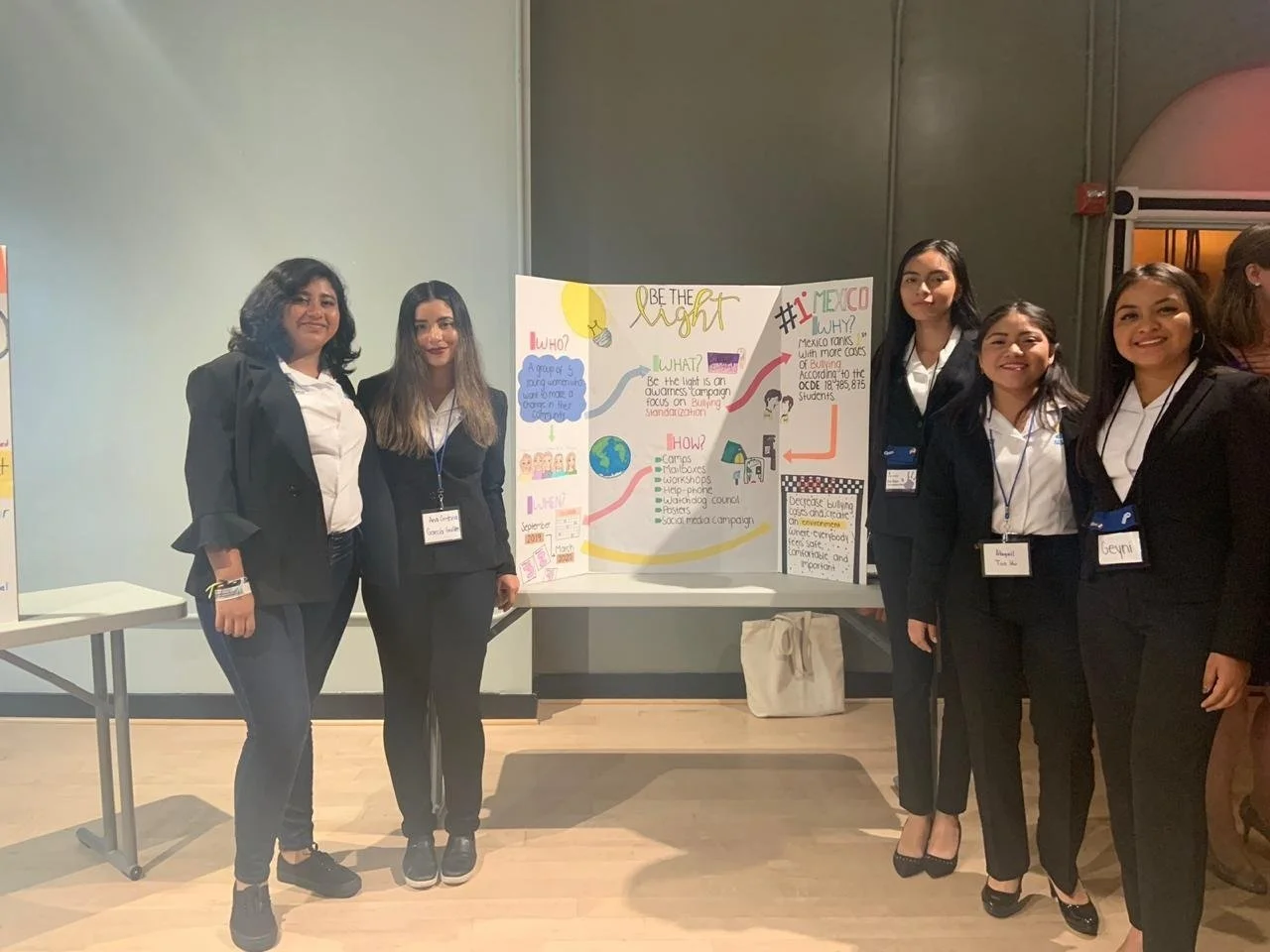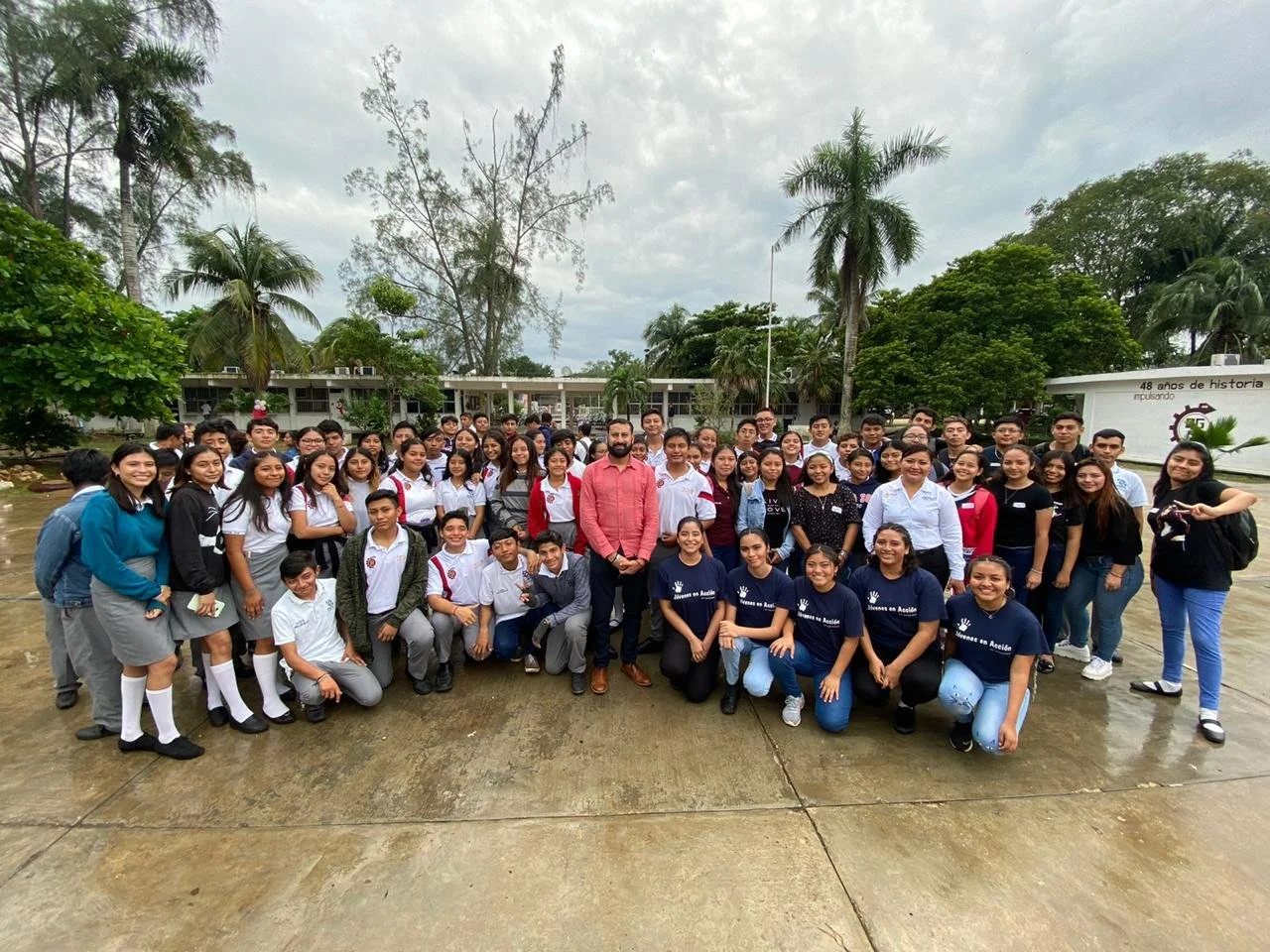Global Education, Local Impact
What’s Global Education, and why is it more important than ever that education systems adopt this method of teaching? Read more about it here.
The current pandemic reinforces the fact that we live in a globalized and increasingly interconnected world. An event occurring thousands of miles away can trigger an issue in another part of the world for decades and centuries to come, carrying social, financial and environmental repercussions. Covid-19 has made inequities in our world more glaring, especially regarding education. Since 1.5 billion students could no longer attend a physical school, many systems underwent drastic changes, some more harshly experienced by students in the global south. At Na'atik Culture and Language Institute, our successful pivot to online learning and ability to continue working with a global educational framework was possible through the support from our community. Others have not been so lucky.
Online learning has been an invaluable resource to the well-being of our students, teachers and staff. For example, while remote learning opportunities were afforded to 90 percent of students in wealthier countries, less than 25 percent of low-income countries were afforded this opportunity.
Na’atik is aware that the steps towards resolving this inequality may involve considering different approaches to education. To less-privileged learners, it's about imparting dignity and self-respect and getting them to see their contributions are also important and essential. To learners who are better positioned to effect change for better or for worse, it is about fostering empathy and partnership, as opposed to detachment, which often leads to the reinforcement of oppressive systems.
Educational Framework Models
The Dominance Model
The traditional framework in education is a dominance model. In the dominance model, there is an emphasis on individualism instead of cooperation and dialogue; there are hierarchies of knowledge, as well as epistemicide--the destruction of knowledge and history, which results in detachment. Ultimately, we arrive at our current system where prosperity is unequally distributed, responsibility is evaded and the costs are unequally shared. What works out for some ultimately fails the whole entirely.
In Mexico, the dominance model is apparent in approaches to modernization. Projects involving the development of infrastructure can often result in the displacement and economic disempowerment of Indigenous people. Projects are often started without their consultation, and the media, political and educational systems render them invisible. What is required is a reconsideration of the effectiveness of this current system, especially regarding its negative effect on human dignity. A framework that deemphasizes greed, wastefulness and marginalization and encourages partnership, collaboration and human dignity is what is needed in the education system.
Global Education
An antithesis to the dominance model is Global Education. Global Education is an educational framework that acknowledges our interconnectivity and the growing need for equality, collaboration, and empathy, so learners worldwide can reach their potential and become great stewards to their communities. Ultimately, this re-configures educational systems from the traditional "global economy rules" which emphasize dominance and exploitation in order to restore human dignity as a core value.
According to Global Education Guidelines, learners:
recognize the global nature of their interactions
recognize the role of media and technology in the current system
reflect on their role within a global and in a connected society
develop a sense of social responsibility
are exposed to diverse points of views
are exposed to abstract examples as well as concrete everyday examples
are taught to value equality, partnership, and cooperation
What does Global Education look like?
an informed, hopeful and realistic appraisal of the world
materials which delve deep into the context, causes and roots of global events
facilitated discussions between learners of diverse backgrounds
effective, non-violent communication rooted in respect and human dignity
incorporates arts and creativity
learning methods such as brainstorming, ice-breakers, presentation and ceremony
consultations with communities involved in particular topics of discussion
At Na'atik language and Cultural institute, our dynamic classes, encouraging teachers and commitment to diversity has a lasting impact on how our local students see others and themselves.
Abby, 19, is a Na’atik English language student from our Maya city of Felipe Carrillo Puerto and has studied with us for more than 6 years. She is currently studying business management in college. Her family is one of our homestays, so she has shared her home with many people of all ages from around the world. Although she grew up within a community that celebrates the beauty of her culture and traditions, the lack of Maya representation in her public education, along with how she is regarded in other states of Mexico, has shown her the importance of being proud of her roots, her own unique voice, and the contributions of her culture.
“When I went to middle school in Mexico City, people often asked me in a funny way why my last name is ‘Tus’. It’s a Maya word. I might have an uncommon last name to them, but I really like mine. Tus is a plant from Carrillo.”
Abby is also very aware of the stereotypical representation of Mexicans worldwide.
“The media has a narrow view on what Mexicans are like. We are not stereotypes. People in Quintana Roo are not so white [like in the media] and we have different physical characteristics and personalities.”
Na’atik’s learning method has had an impact on Abby’s language skills along with her confidence.
“In Na’atik the teachers changed my life because of their approach. The classes are dynamic so you are able to stay motivated. One thing I loved was our trip to Xcaret, where we were encouraged to interact with different kinds of people with a scavenger hunt. We learned to make connections with people who are different from us.”
One of Abby’s most impactful experiences was when she received a scholarship from the US embassy in Mexico to travel around Mexico and the US to give presentations about bullying.
“The experience changed my perspective. Doing something like that seemed impossible to me before, now I feel like I can do more and make changes with my communities and influence younger girls.”
If you would love to support Na'atik Language and Culture Institute’s effort to support Global Education, make a donation to our Impact Fund which supports the school's infrastructure, ability to have excellent staff, programs and provide equipment and school supplies for our students’ use.





